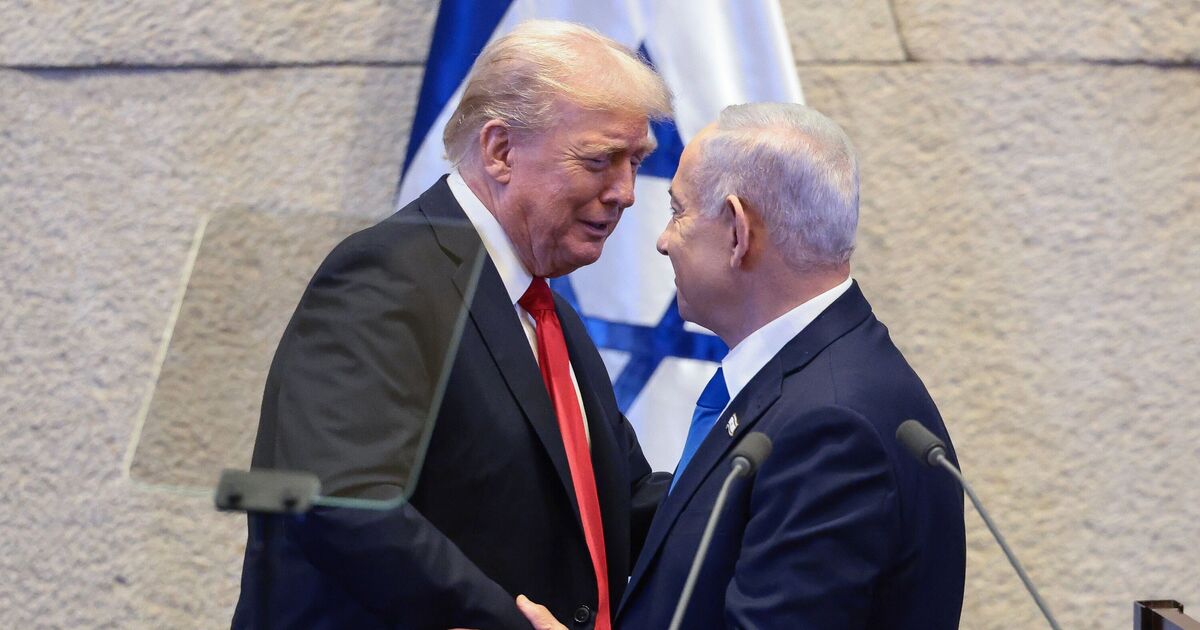A fresh report sheds light on how former US President Trump persuaded Israeli Prime Minister Benjamin Netanyahu to agree to a ceasefire deal with Hamas.
Sources reveal that the ex-US President simply told Netanyahu they would publicize the agreement, and the Israeli leader had no choice but to comply. “Bibi, you can’t fight the world,” Trump reportedly told him during an interview with TIME. “You can fight individual battles, but the world’s against you.”
Throughout his 2024 campaign, Trump kept in touch with Netanyahu. It was common knowledge that Netanyahu was rooting for Trump’s return to the White House, as President Joe Biden was pressuring him to halt the attacks on Gaza.
The Israeli Prime Minister even paid a visit to Mar-a-Lago in July of that year, a mark of their friendship and Netanyahu’s turn away from the Joe Biden administration, despite the largest amount of hostages being repatriated under a Biden deal.
However, Netanyahu’s relationship with Trump wasn’t without its challenges. Trump left office feeling disgruntled with the Israeli leader—initially for backing out of a planned 2020 joint operation against Soleimani (a claim Israel has disputed), and later for being among the first global leaders to congratulate Biden on his 2020 election victory.
Netanyahu was eager to smooth things over.
Trump’s popularity in Israel—where his approval ratings far surpassed those of the Israeli Premier—gave him leverage over Netanyahu. He knew how to publicly support Netanyahu while privately urging him to end the conflict, advisers disclose.
“He would have just kept going,” Trump tells TIME. “It could have gone on for years. It would have gone on for years. But I stopped him, and everybody came together when I stopped him.”
Netanyahu, who is set to meet with U.S. Secretary of State Marco Rubio on Friday, agreed with Vice President Vance’s recent statement that Israel should not become a “vassal” state.
“One week they say that Israel controls the United States. A week later they say the United States controls Israel. This is hogwash. We have a partnership, an alliance of partners who share common values, common goals,” Netanyahu declared.
Vance acknowledged the challenging path to long-term peace, especially given the ceasefire is less than two weeks old, but he maintained the hopeful tone he established Tuesday upon his arrival in Israel.
“We have a very, very tough task ahead of us, which is to disarm Hamas but rebuild Gaza to make life better for the people in Gaza, but also to ensure that Hamas is no longer a threat to our friends in Israel. That’s not easy,” Vance admitted. “There’s a lot of work to do, but I feel very optimistic about where we are.”
An Israeli official disclosed that Turkish involvement in the security force was discussed during Vance and Netanyahu’s meeting, with Netanyahu expressing his opposition to Turkish military presence. The official requested anonymity due to the confidential nature of the diplomatic discussions.
In what seemed to be a calculated move to undermine Netanyahu during Vance’s visit, extremist lawmakers in the Israeli parliament gave initial approval Wednesday to legislation that would authorize Israel to formally a.
The U.S. has firmly rejected the policy to annex the occupied West Bank, a measure that narrowly passed by a single vote, 25-24. It remains uncertain whether the proposal has enough backing to secure a majority in the 120-member parliament, and Netanyahu has mechanisms to stall or block its advancement.
This development coincides with the International Court of Justice ruling on Wednesday that Israel must allow the U.N. aid agency in Gaza, known as UNRWA, to deliver humanitarian relief to the region – despite nine UNRWA employees being terminated following an internal investigation that determined they may have participated in the Hamas-led October 7 assault on Israel.

